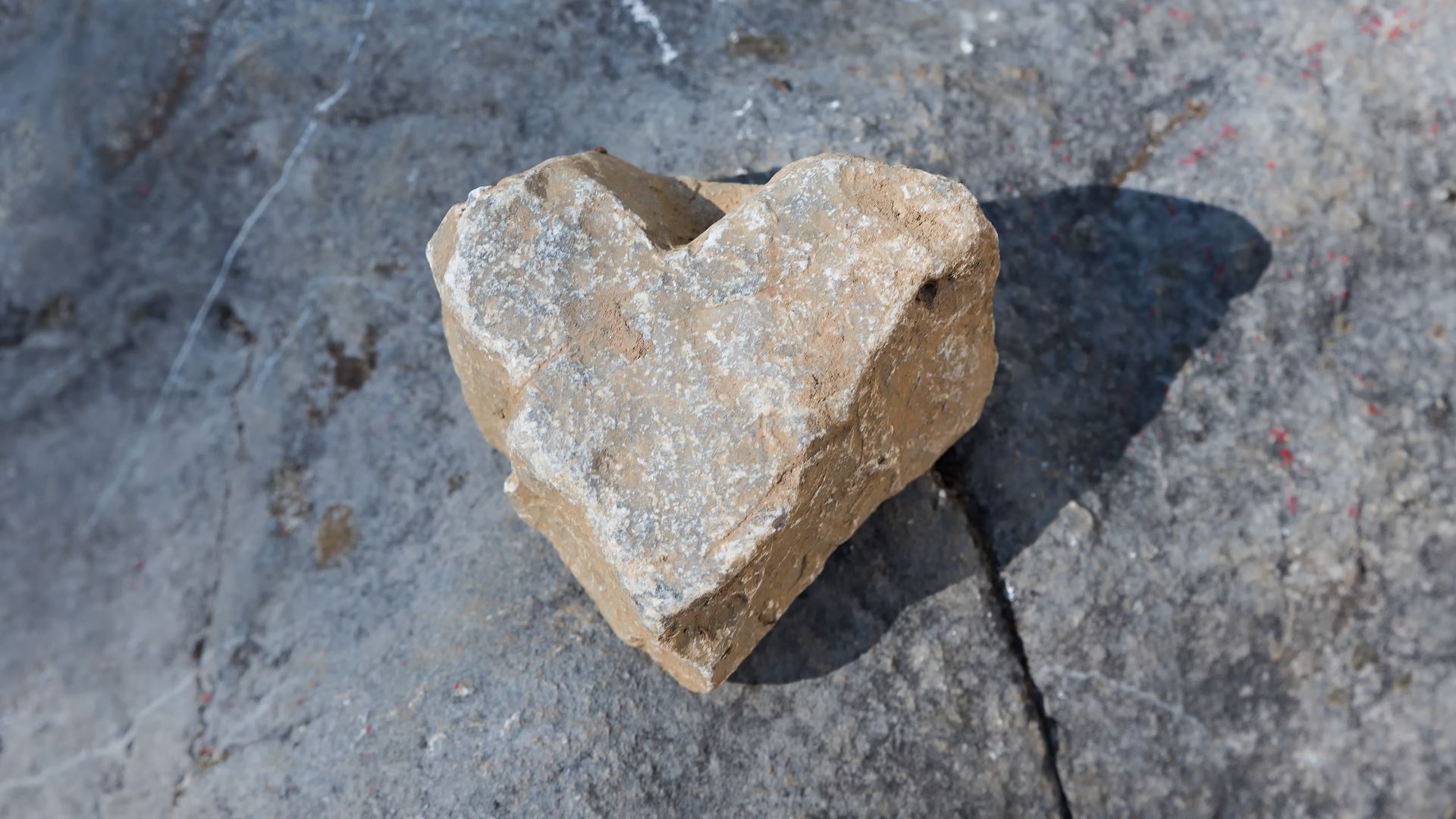Our Greatest Hope (Ezekiel 11:17-20)

Big Idea: Our problem is severe. The solution is that we need a new heart from God.
Sometimes the worst parts of life are very closely tied to the best parts.
Today I want to do something simple: I want to look at one of the worst moments in the entire Bible with one of the best promises in the whole Bible. The two belong together. The two give us a really good window into the Christian faith.
So let’s look at one of the worst moments, and then let’s look at one of the greatest promises.
One of the Worst Moments
We’re looking at the book of Ezekiel today. Ezekiel was a prophet who served in the Babylonian captivity.
In 586 BC, Babylon besieged Jerusalem. They completely destroyed the city, including the temple. The Babylonians carted off a lot of the people to Babylon some 700 miles away. This was probably the lowest moment in the whole of the Old Testament.
But just before this low moment, Ezekiel comes along. Ezekiel was probably one of the first waves of people who’d been carried off into exile even before, some ten years before the destruction of Jerusalem, along with the royal family. So Ezekiel is writing just before Jerusalem is destroyed, but he’s already in Babylon.
Just to warn you: what Ezekiel writes is trippy.
W. F. Albright describes Ezekiel as “one of the greatest spiritual figures of all time, in spite of his tendency to psychic abnormality.” Ezekiel’s behavior has been called many things: “pathological,” “psychic,” “schizophrenic,” “epileptic,” “catatonic,” “psychotic,” and “paranoid.” (Mark Dever)
Ezekiel is pretty hardcore. The book is so strange that some Jewish rabbis wouldn’t allow young men to read his book until they were 30 years old because they were afraid it would be too hard, and perhaps too weird, for them.
In the passage we’re looking at today, Ezekiel is in Babylon before the destruction of Jerusalem. And he has a vision. In chapters 8 and 9, Ezekiel gets a glimpse at the problem. He has a vision of the atrocities being committed in the temple.
And then he begins to have a vision of what’s going to happen. He has a vision of the Babylonians coming to conquer Jerusalem, but that’s not even the worst part. Imagine that. The siege, the starvation, the death, the capture of the city, the destruction of the city — none of that is the worst part. What we’re about to read is the worst part. It’s even worse than the destruction of Jerusalem.
Look what happens.
In chapter 8 verse 4, we read, “And behold, the glory of the God of Israel was there,” meaning in the temple. God was there in Jerusalem. God lived among his sinful people.
In chapter 9, verse 3, we read, “Now the glory of the God of Israel had gone up from the cherub on which it rested to the threshold of the house.” That’s a little concerning. God’s glory moves to the threshold of the temple.
But then in chapter 10, verses 18 and 20, we read, “Then the glory of the LORD went out from the threshold of the house, and stood over the cherubim … And they stood at the entrance of the east gate of the house of the LORD, and the glory of the God of Israel was over them.”
The glory has gone from within the temple to the threshold of the temple to the entrance of the east gate of the temple. And then in chapter 11, verses 22 and 23, we read:
Then the cherubim lifted up their wings, with the wheels beside them, and the glory of the God of Israel was over them. And the glory of the LORD went up from the midst of the city and stood on the mountain that is on the east side of the city.
God abandons the temple.
Think about this. The thing that had made Israel Israel is that God had been with them all this time. Back when they escaped Egypt, the Egyptian army was close to destroying them. But God was with them as a pillar of smoke by day, and a pillar of fire by night.
When Israel built a golden calf, God told Moses that he wasn’t going to go with them. But Moses cried out to God:
If your presence will not go with me, do not bring us up from here. For how shall it be known that I have found favor in your sight, I and your people? Is it not in your going with us, so that we are distinct, I and your people, from every other people on the face of the earth? (Exodus 33:15–16)
Moses knew that if they didn’t have God’s presence, they didn’t have anything. So God stayed with them.
Eventually, they built the temple. On the day they brought the ark of the covenant to the temple, an amazing thing happened. “And when the priests came out of the Holy Place, a cloud filled the house of the LORD, so that the priests could not stand to minister because of the cloud, for the glory of the LORD filled the house of the LORD” (1 Kings 8:10–11).
God was present with his people.
But then, in this vision, Ezekiel sees God move out. He no longer lives with his people, at least the people in Jerusalem. In chapter 11:16 we read that God goes to be with the people in exile in Babylon.
For Ezekiel, the real problem isn’t when Babylon comes to destroy Jerusalem. That’s only a symptom of the real problem. The real problem is when God moves out. God had enough.
The fundamental reality that Judah had always relied upon, the presence of God in their midst in the temple on Mount Zion, is revealed to be now nothing more than a hollow shell. The glory of God has departed from their midst, leaving the city ripe for destruction. What that means is that those who seem to themselves to be in the better situation—in the frying pan rather than in the fire, those confidently depending on God’s commitment to Zion—are actually next on the menu. God has abandoned them to their doom. To continue the culinary metaphor, their goose is cooked. (Iain Duguid)
I guess, in some ways, the destruction of Jerusalem was the worst event that happened in Israel’s history. But the even worse event that led to that destruction is here: that God left his people because of their persistent sin.
God is gracious. He is patient. But if we persist in our rebellion against him, we will be left with an empty form of religion that God himself has abandoned. As Iain Duguid says:
God’s presence can be removed from a church, just as it abandoned the temple, leading to that church becoming nothing more than a hollow shell. Outwardly, everything may still seem to be in place, but without the internal reality of God’s presence it is merely a matter of time before the whole edifice collapses.
This is, I would argue, the worst moment in Israel’s history, but it also goes long with one of the greatest promises.
One of the Greatest Promises
In the middle of this horrible vision of God abandoning his people, Ezekiel sees some hope. The exile is temporary, he says, and God is going to do something that God’s people desperately need.
Therefore say, ‘Thus says the Lord GOD: I will gather you from the peoples and assemble you out of the countries where you have been scattered, and I will give you the land of Israel.’ And when they come there, they will remove from it all its detestable things and all its abominations. And I will give them one heart, and a new spirit I will put within them. I will remove the heart of stone from their flesh and give them a heart of flesh, that they may walk in my statutes and keep my rules and obey them. And they shall be my people, and I will be their God. (Ezekiel 11:17-20)
Their problem was not the Babylonians. Their problem was not that they were in exile far from home. Their problem was not that they needed a self-improvement project. Their problem went much deeper. They needed new hearts.
God promised them restoration — not just restoration to the land, but brand new hearts. God will not just undo the past. He will deal with the underlying issues that caused the problems. God promises to fundamentally change Israel’s relationship with him and with the land.
Ezekiel gives a stunningly accurate diagnosis of our problem and a very hope-filled solution to our condition.
Here’s the problem: A heart of stone. Our problem is not that we need a little self-improvement. Our problem is not that we need to try a little harder. The problem is that we have bad hearts. I’m no cardiologist, but a heart of stone sounds bad. A stony heart is dead, unresponsive to God. That’s our problem. Ezekiel has already spoken of this. “Son of man, these men have taken their idols into their hearts…” (Ezekiel 14:3). An idol is anything that takes the place of God, and as John Calvin said, our hearts are idol factories. Ezekiel has also called the Israelites hard-hearted (2:4) and said they have stubborn hearts (3:7).
Christianity is not about becoming a better person. It’s not about self-improvement. We’re beyond that. We need more help than that. Our condition is far too serious.
The only solution is radical surgery, “the removal of the defective and fossilized organ and its replacement with a sensitive and responsive heart, ‘a heart of flesh’” (Daniel Block). And that’s exactly what God promises to do. Our new heart will be different. It will want to obey God. It will want to honor him. God doesn’t just change our behaviors. He changes our desires. He fixes our wanters.
This is the worst moment. God withdraws his presence from his people in Jerusalem. But it also gives us one of the greatest promises. Not only will our sins be forgiven through the work of Jesus on the cross, but we will be changed by the power of the Holy Spirit. He will change us from the inside out. He will give us new hearts.
How do we get these new hearts? We receive them. It’s the only way. We can’t turn our hearts from stone to flesh, but God can. We come to him with empty hands of faith and he completely remakes us. It’s what he loves to do. Our problem is severe. The solution is that we need a new heart from God.
In The Voyage of the Dawn Treader, C. S. Lewis tells of how a young boy named Eustace becomes a dragon—a very unhappy dragon at that. Eustace steals a gold armband and puts it on, only to find that his greed turns him into a dragon. And the armband is excruciatingly tight on his dragon foot.
One night, in the midst of his pain and frustration, Eustace encounters a huge lion who tells the boy to follow it to a high mountain well. Eustace longs to bathe his aching foot in the cool water, but the lion tells him he must undress first. It seems silly to Eustace because dragons don't wear clothes, but then he remembers that dragons, like snakes, cast their skins.
So Eustace scratches his skin, and the scales begin falling off—and soon his whole skin peels away. But when he puts his foot in the water, he sees that it is just as rough and scaly as before. He continues scratching at the second dragon skin and realizes there is yet another underneath. No matter how much Eustace tries to get rid of his scaly skin, he can’t. He needs help from outside of himself.
Finally the lion says, "You will have to let me undress you."
Eustace is afraid of the lion's claws but desperate to get in the water. The first tear is painfully deep as the lion begins to peel away the skin. Surely death will follow, Eustace believes. With the gnarled mess of dragon skin now cut away, the lion holds Eustace and throws him into the water.
It smarted like anything but only for a moment. After that it became perfectly delicious and as soon as I started swimming and splashing I found that all the pain had gone from my arm. And then I saw why. I’d turned into a boy again.
You can’t fix yourself. Your condition is too serious. But there is one who can. The surgery is major, but it’s always successful. He will strip away everything that needs to go and give you a brand new heart.
Lord, thank you for diagnosing our problem. And thank you for providing the solution. Thank you for not only forgiving our sins but giving us a completely new heart. May we all receive that from you and live in that new reality. In Jesus’ name we pray. Amen.




